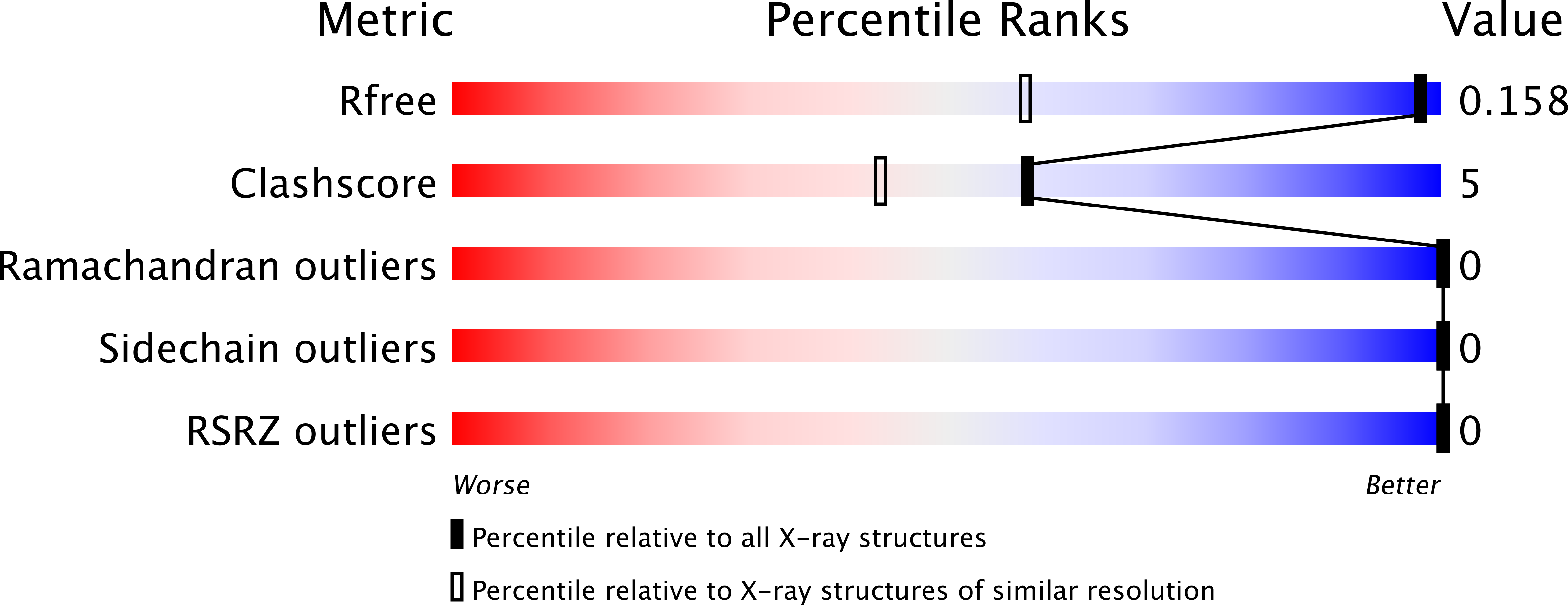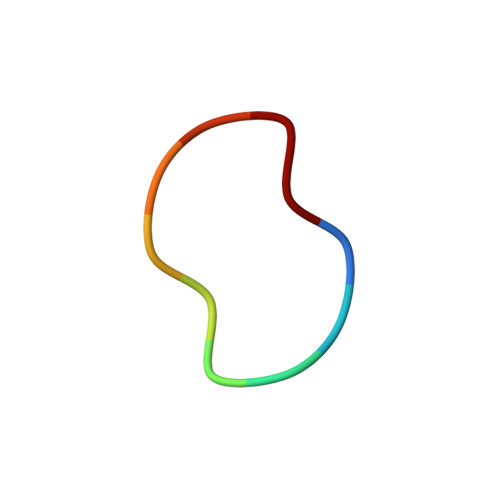Computational design of mixed chirality peptide macrocycles with internal symmetry.
Mulligan, V.K., Kang, C.S., Sawaya, M.R., Rettie, S., Li, X., Antselovich, I., Craven, T.W., Watkins, A.M., Labonte, J.W., DiMaio, F., Yeates, T.O., Baker, D.(2020) Protein Sci 29: 2433-2445
- PubMed: 33058266
- DOI: https://doi.org/10.1002/pro.3974
- Primary Citation of Related Structures:
6UCX, 6UD9, 6UDR, 6UDW, 6UDZ, 6UF4, 6UF7, 6UF8, 6UF9, 6UFA, 6UFU, 6UG2, 6UG3, 6UG6, 6UGB, 6UGC - PubMed Abstract:
Cyclic symmetry is frequent in protein and peptide homo-oligomers, but extremely rare within a single chain, as it is not compatible with free N- and C-termini. Here we describe the computational design of mixed-chirality peptide macrocycles with rigid structures that feature internal cyclic symmetries or improper rotational symmetries inaccessible to natural proteins. Crystal structures of three C2- and C3-symmetric macrocycles, and of six diverse S2-symmetric macrocycles, match the computationally-designed models with backbone heavy-atom RMSD values of 1 Å or better. Crystal structures of an S4-symmetric macrocycle (consisting of a sequence and structure segment mirrored at each of three successive repeats) designed to bind zinc reveal a large-scale zinc-driven conformational change from an S4-symmetric apo-state to a nearly inverted S4-symmetric holo-state almost identical to the design model. These symmetric structures provide promising starting points for applications ranging from design of cyclic peptide based metal organic frameworks to creation of high affinity binders of symmetric protein homo-oligomers. More generally, this work demonstrates the power of computational design for exploring symmetries and structures not found in nature, and for creating synthetic switchable systems.
Organizational Affiliation:
Systems Biology, Center for Computational Biology, Flatiron Institute, New York, New York, USA.















